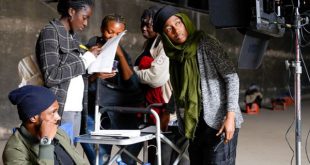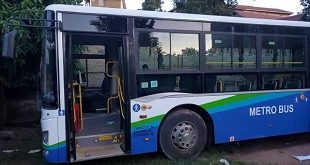
By Mubatsi Asinja Habati
Sam Mugumya, a Forum for Democratic Change youth activist and Dr Kizza Besigye’s personal assistant, has borne the brunt of police wrath during political demonstrations. Whenever Mugumya has participated in a demonstration pursuant to his constitutional right, the police have either clobbered him or threatened to hurt him. He and other demonstrators have been bundled and thrown on police trucks for detention. They have been arraigned in court for participating in unlawful assemblies.
Following the proposed Public Order Management Bill 2009 which the police are about to present to cabinet, the plight of Mugumya and others might become more complicated than before.
The Bill seeks that any public gathering comprising three or more people must get clearance from the Inspector General of Police (IGP) or any other officer representing the IGP. As the country draws closer to 2011 elections, political demonstrations are likely to increase and so will the police suppression and crackdown.
In July, members of the National Alliance for Free and Fair Elections (NAFFE), an opposition activist group, were violently dispersed when they attempted a demonstration demanding resignation of the Electoral Commission team, which they accuse of being partisan in favour of President Museveni, the appointing authority. The FDC president and joint presidential flag bearer for the Interparty Cooperation (IPC) Kizza Besigye was roughed up by stick wielding militia (Kiboko squad) as he led an opposition demonstration at Katwe Mosque grounds near Clock Tower on June 9, 2010.

Public rallies of the Democratic Party too have been forcibly dispersed by the police in the city suburbs and various parts in the central region such as Mukono and Masaka districts.
Observers say the new Public Order Management Bill seeks to further tighten the nuts and noose on people’s right of freedom to associate and assemble.
Both the opposition and human rights organisations have roundly condemned the Bill they describe as draconian and appealed to parliament to throw it out.
Why the outrage?
Organisers of demonstrations are required to notify the IGP for permission to hold their intended gathering. Failing to notify the police or holding a public gathering without police clearance under the proposed law attracts a fine of Shs 480,000 or imprisonment not exceeding one year or both.
Police spokesman, Vincent Sekkate, says the police explanation on the Bill has been misunderstood and misrepresented in the media. He says the Bill will only affect public gatherings, not private meetings. He says the demonstrators should cooperate with the police to maintain law and order during a demonstration. He says there have been reports in the media that the Bill will affect even organisers of social gatherings such as clan meetings, weddings and funeral vigils.
Mugumya says that the Bill is an a plot by the police to legitimise what they have been doing illegally since the Supreme Court ruled in the Muwanga Kivumbi vs Attorney General petition that demonstrators do not need police permission, they only need to notify the police.
“Peaceful assemblies and protests are a vital part of every democratic society…Maintaining freedom to assemble and express dissent remains a powerful indicator of the democratic and political health of a country. I therefore find the powers given to the Inspector General of Police to prohibit the convening of an assembly or a procession an unjustified limitation to the enjoyment of a fundamental right. Such limitation is not demonstrably justifiable in a free and democratic country like ours,†the court ruled.
The judges also said that the police are supposed to maintain law and order as the demonstrators express their discontent.
Human rights activists and lawyers say the Bill aims at reversing this court judgement, contrary to Article 92 of the national constitution.
They say the Bill seeks to reintroduce the provisions of the Police Act, Cap 303, which were nullified by court. Article 92 of the constitution prohibits enactment of a legislation designed to defeat or overturn a judicial ruling.
“In Uganda the problem is that the ruling party and the police look at the opposition political demonstrators as disturbers instead of stakeholders in the affairs of the state. They think it is wrong for me to express my views through a demonstration that Mulago Hospital needs cancer drugs but it is right for a religious leader to demonstrate with the cross, because his demonstration does not question what the government is doing for the taxpayers,†says Mugumya.
The Bill has alarmed the opposition parties who fear they are the main targets.
The FDC spokesman Wafula Oguttu said his party is working on legal documents to challenge the Bill as soon as it is tabled in parliament. Norbert Mao, the DP president, said the Bill’s “implementation will infringe on people’s right of association.†Mao says the Bill targets opposition politicians who wish to hold rallies and says his party has started lobbying other members of parliament to oppose it in the House.
Livingstone Sewanyana, executive director of Foundation for Human Rights Initiative (FHRI), said the Bill poses serious challenges to Ugandans in enjoying their fundamental freedoms and human rights guaranteed by the 1995 Constitution. He said civil society organisations are preparing a petition to parliament to reject the bill.
Some political observers say that the Bill also targets to check Buganda kingdom administration’s actions following public riots in September last year after the government blocked the Kabaka of Buganda from visiting Kayunga, a part of Buganda kingdom. About 30 people died in the riots and the kingdom’s radio, CBS, has since been switched off air for allegedly inciting the riots. More than a dozen people are on trial for alleged involvement in the riots and are still in Luzira prison.
Observers speculate that the Bill could be targeting to control Kabaka’s gatherings which usually carry political overtones whenever he tours the kingdom. According to the Bill, organisers of such Kabakas gatherings would have to first secure clearance from the police.
While celebrating his 17th coronation anniversary, Kabaka Ronald Mutebi said the persecution of Buganda should stop. He cited the closure of CBS, denying him access to some territories under his kingdom, arrest of his ministers in 2007 and dividing Buganda into chiefdoms. The Kabaka’s remarks were interpreted to be a reference to September riots when he was blocked from going to Kayunga, a district in his kingdom. He said Buganda will not waver on demanding what rightly belongs to it.
Nowadays Buganda is under a lot of provocation. First, it is very difficult now for us to reach out to the people. It is very hard to send out developmental news and deal with poverty as we used to previously when our radio, CBS, was on air. Secondly, Buganda has been divided, and many of its properties havent been returned. Thirdly, it is very disappointing that there are places in Buganda where it is said the Kabaka of Buganda must seek permission before visiting his people there,†the Kabaka said in his speech.
The official government reason for the new Bill is to safeguard both demonstrators and non-demonstrators during demonstrations. The government also says the Bill is to ensure public safety from constant terror threats following the July 11 bombings in Kampala. However, the terror threat seems a mere additional excuse to defend the Bill. It cannot have been the primary reason that informed the drafting of the law because the Bill was made in 2009, many months before July terror attacks.
The Bill gives the IGP and the Minister of Internal Affairs wide discretionary and unjustifiable powers over the management of public meetings. The Bill also places impractical obligations on the organisers of public meetings. For example the organiser must ensure that demonstrators are unarmed, they adhere to the traffic plan, meetings are concluded peacefully by 6 p.m and statements made at those gatherings do not break the law.
In this context, the Bill not only seeks to regulate the conduct of public meetings but also to the content of the discussion, which violates the right to freedom of speech.
Amnesty International says the proposed law aims to limit the rights to freedoms of assembly and expression cannot be justified.
Highlights of the Bill
Organisers of public meetings should notify police at least seven days in advance. This means that the opposition cannot address roadside crowds who gather spontaneously during the campaign trail as the opposition will not have notified the police in advance.
The Inspector General of Police has discretionary powers to order that the proposed meetings be rescheduled or relocated.
Section 6 of the Bill focuses on political meetings. It defines a public meeting as any gathering of three or more persons in a road or other public outdoor place for the purpose of discussing, demonstrating about or protesting about policies or actions of government or governmental institutions.
Such meetings can only take place after 6am and before 6pm.
Under the new law, organisers of a public gathering would need police permission to use public address or amplification system at the meeting.
The Minister of Internal Affairs has powers to declare certain locations prohibited for public meetings of more than 25 persons without a police permit. On the basis of the ministers opinion that such a prohibition “is desirable in the interests of public tranquility†no person or group can hold a public gathering.
The Bill also gives the police wide powers to disperse such gatherings or meetings if they have reasonable ground to believe a breach of the peace is likely to occur.†Public meetings do not include those convened for social, religious, charitable, cultural, trade unions, educational, commercial or industrial purpose.
Any organiser of a public meeting to discuss policy or affairs of government has to get police clearance. If three or more persons are to convene to discuss government policy or affairs must get police permission.
The police can alter the date of the meeting and how it will be conducted. Its the police to decide whether the venue of meeting is suitable or not.
Continuing a public meeting after it has been dispersed by police attracts a fine of Shs120,000 or imprisonment not exceeding three months or both.
If more than the recommended people attend the public meeting, police has powers to disperse it. The minister too has powers to stop a public meeting at his will.
Section 15 (2) of the Bill reads: The minister may by regulation made under this Act prescribe for a contravention of the regulations a fine not exceeding twenty four currency points or imprisonment not exceeding one year or both and in case of continuing offence prescribe an additional fine not exceeding ten currency points for each day on which the offence continues.
Amnesty International has decried the Bill as a move to stifle freedom of association and assembly in Uganda.
 The Independent Uganda: You get the Truth we Pay the Price
The Independent Uganda: You get the Truth we Pay the Price


